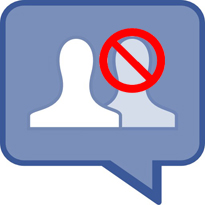 A staggering 83 million of the 955 million accounts on Facebook, equating to 8.7%, are not legitimate users, according to the social media giants.
A staggering 83 million of the 955 million accounts on Facebook, equating to 8.7%, are not legitimate users, according to the social media giants.
Of the 110 million members Facebook has attracted since March – when it reported that 5 to 6 percent, or 42.5 to 50.7 million, of its 845 million monthly active accounts were false – more than 30 million can be discounted.
Facebook has said that the 8.7% figure is made up from 4.8 percent duplicate accounts, 2.4 percent misclassified – for example, where an account is created for a pet – and 1.5 percent undesirables (spammers).
The figures were released in a report filed with the US Securities and Exchange Commission (SEC) at the beginning of August. In the report, the social network acknowledges that its success is dependent not only on its user base in terms of its clout with the advertisers who fund its upkeep, but in that people must perceive its product to be useful, reliable and trustworthy.
With 83 million false accounts, the chances are you’ve come across more than the odd imposter. Duplicate or pet accounts aren’t anything to worry about; spammers and other undesirable accounts may well be, the report said.
But is Facebook really attracting more imaginary friends, or is it simply getting better at recording its figures? According to its 10-Q report, it’s probably the latter.
“These estimates are based on an internal review of a limited sample of accounts and we apply significant judgment in making this determination as such, our estimation of duplicate or false accounts may not accurately represent the actual number of such accounts,” it said.
The figures may not do Facebook any favours with its advertisers today, but better reporting will likely be for the best in the long run.
“Companies who are considering advertising on the social network want to be sure that any ‘likes’ they receive are from genuine users, not bogus accounts,” said Graham Cluley, senior technology consultant at Sophos.





